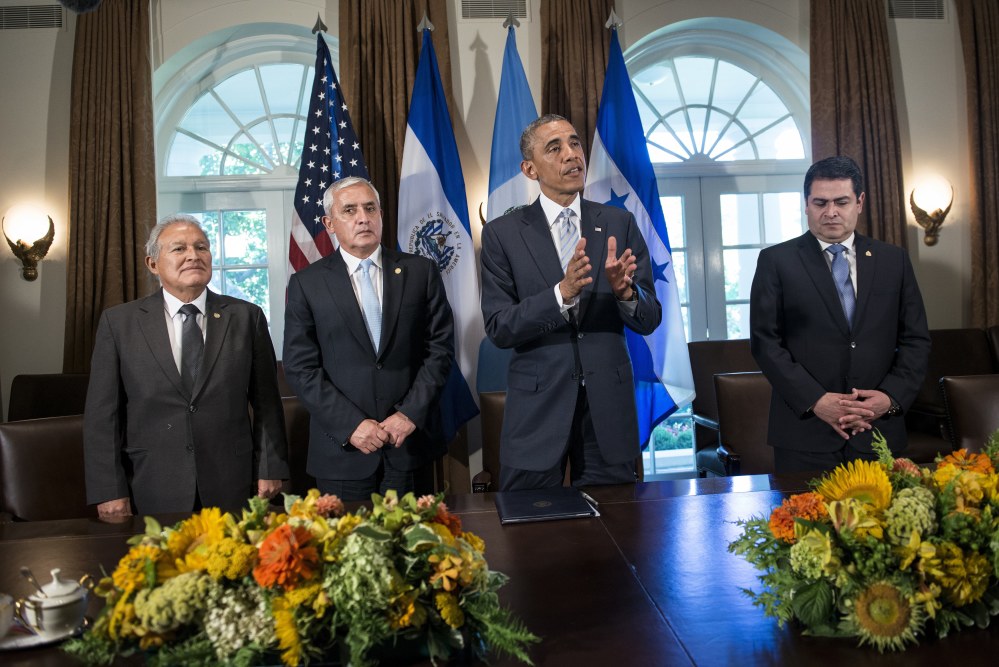
If all three countries understand the opportunity before them and the U.S. upholds its promise, soon the region will become an equilateral triangle with great potential.
El Salvador, Honduras and Guatemala form our famous Central American Northern Triangle. The three countries form one of the most violent and beautiful regions of the world, host to lovely weather, forests, mountains, history and kind people, which is a contradiction in itself. While the triangle has great potential, it is also liable to having its population flee due to violence, poverty and lack of opportunity.
A lack of education and culture is pervasive in this region: It needs a new perspective for development, which is the least the U.S. could bring to the table if it really recognizes the responsibility it has to the region for abandoning it after signing peace agreements, building military bases, and funding wars to contain the advance of communism in Latin America. The U.S. is not wholly responsible, but holds a large part of the blame for what is happening to us, due to its promoting and funding economic and political systems that failed during their development.
Let us not forget that we were guinea pigs for all sorts of experiments, including economic theories like the Washington Consensus, the use of indigenous people living in our borders as literal lab rats, and, the first great experiment for open trade in free market zones, among others. In the end, these [experiments] left us bewildered and lost some place between Cold War politics and the illegal drug trade.
The United States’ heart melted after seeing 40,000 to 60,000 children appear on its doorstep, not only because of the human issue they represent, but also because such numbers arriving each year could influence the American life in a way that the country is not ready to assimilate [them]. It seems the Americans finally realized that they cannot just fix the problem by investing in border patrols, technology to improve border security, walls, or the persecution of illegal aliens; rather, the U.S. has to create work for these families in their home countries.
This is what we should see as residents of these countries: a great opportunity for looking to redress the reality that the region has tried to make evident for centuries. It is very simple: Our people migrate because there is no work here, there is a lack of opportunities, and because the democratic system has not been good enough to create those opportunities.
If the U.S. finally opens its eyes, we too must open ours. I hope that our politicians do not waste this opportunity trying to protect their own interests. It is necessary that we open our minds and see how the help and good will of the U.S. will turn into more viable, more convenient and less dogmatic ways of life, which will help the economic system flourish, help the territories of the Northern Triangle hold onto their citizens, as well as grant them an education and marketable skills. Then, even if someone was to emigrate, he or she will do so being able to support the market and not simply take advantage of it. For now the people migrating from our territories do not speak English; do not know about the American political system; are not well-educated, neither in general culture nor in math; and their knowledge of trades has lost the quality it once had. If all that was not enough, the young people arrive at the U.S. with a criminal history and are either part of a gang or hope to enter one. Our emigrant is not contributing the same way he did in past decades when his work was cheap but good. Nowadays it is neither cheap nor good, and also demands of the U.S. system the resources needed for education, health and food.
As Salvadoran, Guatemalan and Honduran people, we must now position ourselves differently if we wish to finally change our future. Honduras cannot continue with its expansionist and colonial intentions of stealing territory from El Salvador; Guatemala cannot continue with its isolationist policies of the recent years; and El Salvador cannot keep pretending to be something it is not. Its economy is not what it once was, and it needs the other two countries to grow and develop. Now is the time for integration. It will not be an easy or short process, but without that outlook we will not be able to attract investments, development or employment.
All three countries are small economies. We should increase exports and agricultural production, develop industry, and provide decent housing to millions of impoverished citizens if we want our poorest citizens to stop looking to the north as a solution. The price of destroying the family is violence, resentment and lawlessness.
If all three countries understand this opportunity and the United States upholds its promise, soon the region will become an equilateral triangle with great potential. But that is only if the right and left parties take proper care of the government. Which of the three countries will lead the process?

Leave a Reply
You must be logged in to post a comment.